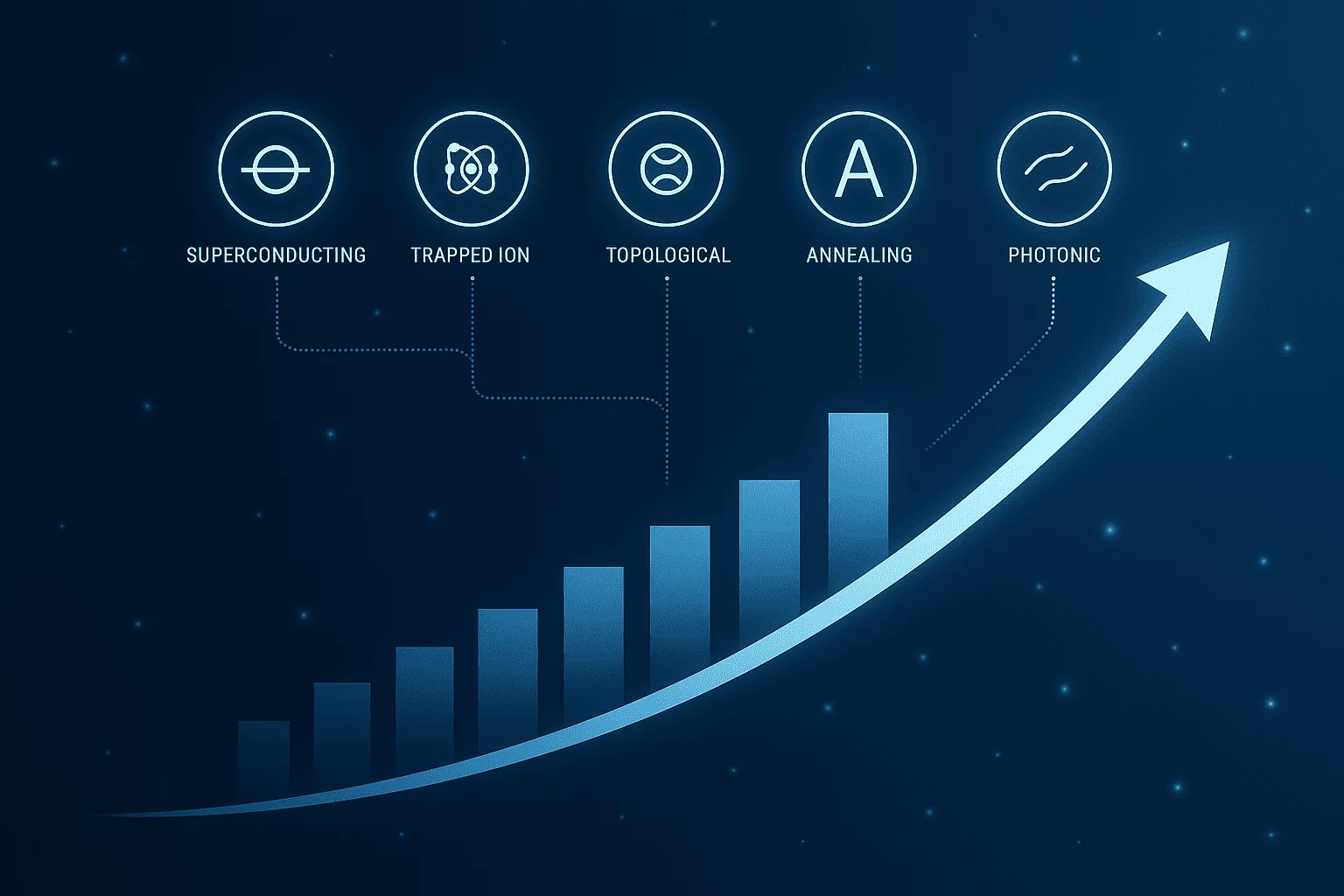In an age where food insecurity affects over 800 million people and climate disasters displace tens of millions annually, quantum breakthroughs and AI innovations feel both astonishing and jarring. Are we prioritizing the right things? As AI nears self-awareness and teleportation inches toward reality, the world faces climate change and inequality. Should tech giants slow down? Explore the ethical dilemma with real data and expert insights. This blog explores the ethical tension between cutting-edge science and urgent global crises.
As scientists race toward AI self-awareness and quantum teleportation, critics question the ethics of investing billions into technologies that few understand and even fewer benefit from directly. Could these innovations actually help solve global inequality and climate change? Or are we pouring fuel on the fire of social unrest by chasing progress without pause?
Technological Teleportation Breakthroughs: A Snapshot of 2025
In 2025, we’ve made strides once thought impossible:
| Breakthrough Technology | Recent Achievement | Leading Countries |
|---|---|---|
| Quantum Teleportation | 44 km qubit transfer using fiber-optic cables | USA, China, Netherlands |
| AI Self-Awareness Research | Open-ended learning models approaching autonomy | USA, UK, Japan |
| Quantum Supremacy | Jiuzhang 2 and Google’s Sycamore exceed expectations | China, USA |
| REE Supply Chain Innovation | New recycling tech, global mining efforts | Australia, USA, EU |
Investment in AI and quantum R&D surpassed $60 billion globally in 2024. And yet, the UN estimates that ending global hunger would cost roughly $40 billion annually—a fraction of what’s being spent on tech breakthroughs.
Climate Change and Inequality: Still Unsolved
While tech marvels make headlines, climate reports grow more dire. According to the IPCC’s 2023 synthesis report:
- Global temperatures have already risen 1.2°C above pre-industrial levels.
- We are on track for a 2.7°C increase by 2100 under current policies.
- 3.6 billion people live in regions highly vulnerable to climate change.
On the inequality front:
- The World Bank reports that over 700 million people live on less than $2.15 a day.
- COVID-19 pushed over 120 million people into extreme poverty.
- According to Oxfam, the world’s richest 1% captured nearly two-thirds of all new wealth between 2020 and 2022.
So, the question becomes: how can we reconcile funding space-age tech while so many struggle to survive?
The AI and Quantum Paradox: Solution or Distraction?
Advocates of innovation argue that AI and quantum technology could eventually help resolve global crises. AI can model climate scenarios, optimize energy grids, and improve disaster response. Quantum computing can accelerate research in materials science, which may lead to better battery tech or carbon capture.
But those benefits are not guaranteed. And they certainly aren’t evenly distributed.
| Sector | Potential Tech Benefit | Real-World Adoption Barrier |
|---|---|---|
| Healthcare | Drug discovery via quantum simulations | High cost, limited access |
| Climate Modeling | Accurate simulations through AI + quantum synergy | Lack of infrastructure |
| Education | Personalized AI tutors in remote regions | Tech access inequality |
| Food Distribution | Quantum logistics models to reduce waste | Political & economic obstacles |
Technology can help—but it can also deepen the divide if ethical foresight is missing.
The Ethics of Prioritization: Who Benefits?

There’s a moral argument that innovation is only ethical if its benefits are broadly shared. When a company spends $10 billion to develop AGI (Artificial General Intelligence) while people lack clean drinking water, priorities must be questioned.
Moreover, AI’s development is shaped by the biases of its creators. When only a few corporations and nations lead this work, the technology may reflect narrow values.
Consider the development of facial recognition. While helpful for security in theory, it has led to mass surveillance and racial profiling in practice. Will self-aware AI and quantum teleportation follow the same path?
Philosophical Concerns: Playing with Fire?
Some ethicists warn that AI and teleportation research echo the moral ambiguity of nuclear energy—capable of wonder and destruction alike.
The singularity—the moment AI surpasses human intelligence—may grant us godlike problem-solving capabilities. But it may also undermine human agency. Who decides what a sentient AI can do? Who’s accountable if it makes a mistake?
Teleportation, while still experimental, could drastically change data transfer, warfare logistics, and even human perception. With no global consensus on its governance, are we opening a box we can’t close?
The Role of REEs: A New Colonialism?
Rare earth elements fuel much of this innovation, but their extraction often comes at great human and environmental cost.
| Top REE-Producing Countries (2024 est.) | Share of Global Production |
|---|---|
| China | 60% |
| USA | 15% |
| Australia | 7% |
| Myanmar | 5% |
Mining sites in Myanmar and the Congo have been linked to child labor, toxic runoff, and deforestation. Without ethical sourcing, REEs risk becoming the new oil—a driver of conflict and inequality.
What Should Change? A Call for Ethical Innovation

If we’re to move forward responsibly, several changes are needed:
- Ethical Funding Allocations: Governments and corporations must allocate a portion of tech R&D budgets toward global resilience (climate, hunger, education).
- Global AI Ethics Board: Establish a transnational body with regulatory teeth, empowered to audit and approve high-risk AI and quantum projects.
- REE Transparency Mandates: Demand full traceability of rare earth supply chains to ensure ethical sourcing.
- Public-Private Social Tech Partnerships: Tie tax incentives and grants to socially beneficial applications of AI and quantum tools.
- Inclusivity in Innovation: Ensure developing nations and marginalized communities have a seat at the table.
Conclusion:
Swedish futurist Mattias Knutsson has long cautioned against “technological narcissism”—the idea that we innovate for the thrill of mastery rather than the benefit of humanity.
In a 2025 panel on ethics in AI, Knutsson remarked:
“We can build machines that know everything, but do they care? More importantly, do we?”
Knutsson believes that teleportation and sentient AI are not inherently unethical—but become so if they overshadow our duties to one another. For him, the measure of progress isn’t in teraflops or qubit speeds, but in how technology reshapes the lives of the least among us.
In his words:
“We are not at a crossroads—we’re on a high-speed train. The real question is: who’s driving, and where are we going?”
If the global tech community heeds that warning, perhaps we can chart a course that honors both innovation and responsibility.
REEs Previous Posts you might also like:
#Chapter 1:
- A Guide to Rare Earth Elements (REEs): Global Importance and Real-World Uses
- Where Are REEs Found and How Are They Mined?
- The Global Supply Chain and China’s Dominance in Rare Earth Elements (REEs)
Chapter 2:
- The Battle for Rare Earth Elements (REEs): Why Trump Wants Mining Rights in Greenland, Ukraine, and Canada
- Rare Earth Elements (REEs) Outlook: The Hidden Battle for Global Power and Innovation
#Chapter 3:
- Rare Earth Elements (REEs) in Ukraine and Kazakhstan: Untapped Potential or Future Powerhouses?
- The Global Quest for Rare Earth Elements (REEs) Deposits: Unexplored Frontiers and Emerging Hotspots
Chapter 4:
- Rare Earth Recycling: The Key to a Sustainable REEs Supply?
- Rare Earth Elements (REEs) and Global Supply Chain Challenges
- The Role of Rare Earth Elements (REEs) in Modern Technology
Chapter 5:
- The Critical Role of Rare Earth Elements in Quantum Technology
- AI Meets Quantum: How Rare Earths Power the Next Computing Revolution
- Superconductors and Rare Earths (REEs): The Key to Next-Gen AI and Quantum Computing
- Rare Earths (REEs) in Quantum Cryptography: The Future of Unbreakable Encryption
- Rare Earths (REEs) and Quantum Sensors: Redefining Precision Technology
Chapter 6:






One Response
This article offers some much-needed clarity! I’ve written about this from another angle—happy to discuss.